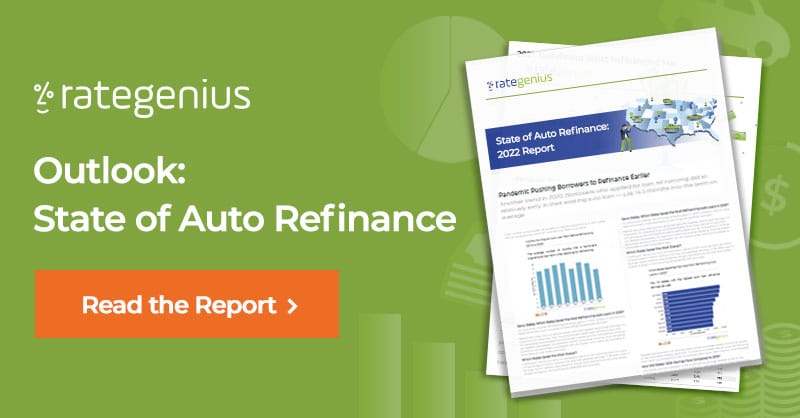A joint bank account can be a great way to combine finances, but it’s not a winning option for every couple.
After merging lives with your significant other, merging your finances with a joint bank account might seem like the next best step. Maybe you’re already sharing bills or have a joint loan. Opening a joint bank account together is a decision that should be carefully thought out and discussed between you and your partner.
Before you decide anything, it’s important to understand how joint accounts work and how the pros and cons will impact your relationship and financial goals moving forward. Here’s what you need to know.
Joint Bank Accounts Explained
As its name suggests, a joint bank account is an account opened by two or more people or entities. You can use a joint bank account just like a standard bank account. However, for couples, both you and your partner’s names will be on the account.
As a result, you will both be able to equally deposit money and withdraw from the account. If someone writes you a check and you need your partner to deposit it at the bank, they can do it for you so long as you have a joint bank account. This wouldn’t be as easy to do with separate bank accounts even if you are married.
To open a joint bank account, both you and your partner will have to provide your personal and financial information. In some cases, banks proof of address through a utility bill or an alternative form of identification.
With a joint bank account, both you and your partner may receive separate debit cards and checkbooks allowing each of you to spend from the account and manage it.
Pros and Cons of Having a Joint Bank Account
While research shows that couples could be happier with a joint bank account, to determine if this option is right for your relationship it’s important to carefully consider the pros and cons.
Pros
The biggest benefits of opening a joint bank account with your partner or spouse include transparency and simplicity. Instead of juggling multiple bank accounts, you can just have one account to manage your income and expenses. This might make it easier to reach shared financial goals together and even help you and your partner get on the same page with your budget.
Both of you will be able to see every transaction, so there will be no secrets and a joint account may even help each of you steer away from making too many frivolous purchases. Another benefit of having a joint account is that it may make it easier when you’re paying bills and regular household expenses. If you both share a financial responsibility for the monthly mortgage payment for example, you can pay it from just one account. There’s also no need to follow up and ask if a bill has been paid. You can simply log into your account and see if for yourself.
Cons
One major drawback of having a joint bank account is that it can amplify communication issues in your relationship. If you were holding money in your checking account for a specific reason and your spouse unknowingly spends it, this can lead to some issues. This is why it’s important to continue to make sure you’re on the same page financially with a joint bank account.
If you want to manage money well with your partner but also want to retain some level of financial independence, this may be difficult to do with one shared checking account. You must shift your thinking from viewing the funds as your own money to shared money between yourself and your partner.
If you and your partner don’t agree on certain financial goals but will still tolerate the other person contributing funds to those expenses, having a separate account may help you keep the peace.
Finally, having a joint bank account requires full trust as your partner will have every right to spend money from the account or even close it if they see fit. If you are not yet at the stage in your relationship with you are both completely transparent about your financial situations, you may want to hold off on opening a joint bank account.
Making the Transition From Individual Accounts to Shared Bank Accounts
If you and your significant other currently have separate checking accounts and are considering a joint bank account, there are a few things you’ll need to consider before making this big decision.
Get Clear on Your Goals
It’s important to discuss why you want to open a joint bank account in the first place? Do you think it will be easier to keep all your money in one place? Do the pros outweigh the cons? Are you just doing it because it’s something your parents did?
Determine where your reasons come from and how important they are. This is also a great time to revisit your financial goals. Maybe you’re looking to buy a home together, get a new car, or take an amazing trip. Discuss how having a joint bank account can contribute to your shared goals and why you prefer to have all your money pooled together.
Acknowledge How Your Spending Habits Are Different
Odds are you and your partner have some key differences and they could play out when you start managing your money together. One of you may be the spender while the other prefers to save money. That said, there may be other differences in your core values that will play a larger role should you open a joint bank account.
Openly discuss these differences and how you’ll handle and overcome them with one shared bank account. If you pretend like they don’t exist, you may face challenges later on as a result. As an example, consider an expense or savings goal your partner has had in the past that you didn’t agree with. Did you ever feel like they spent too much or too little when you both went out to eat? Have you discussed how important goals like debt payoff and retirement savings are to the both of you?
Opening a joint bank account will often shine a light on topics like these so it’s best to acknowledge that differences might exist and find common ground beforehand. That way, you can enjoy the full benefits of having a joint bank account.
Consider Money Management Routines With a Shared Account
Before you open a joint checking account, develop a plan if and how your budget will change moving forward. If you kept your money separate for a long time and typically split some of the expenses, talk about how this might change or what you may want to do differently.
Some of the questions you may want to answer include:
- Who pays for what?
- Will you have a maximum purchase threshold?
- How will you ensure that you both truly consider the money as ‘yours’?
- 50-50 may not always be possible. How will you handle this?
Yes, as you start to answer these your existing budgeting routine will likely change but it should be for the better. If you and your spouse would like to obtain some financial independence still, you can think about establishing a minimum purchase/spending threshold that would allow each of you to spend money freely from the account without asking the other for permission. Some married couples even allow themselves an ‘allowance’ of maybe $100 per month or so to spend however they wish. Then they budget together to plan how the rest of the joint funds will be spent.
If you usually budgeted with the idea of splitting things down the middle, this may not be possible if one person earns more than the other. Get on the same page so that you both view the money in your account as yours regardless of who earns more or less.
What Happens To Your Joint Account During a Divorce?
Divorce is never easy. One thing that can make a divorce particularly stressful is the impact it could have on your financial life. In the unfortunate that a relationship ends, realize you cannot take your spouse’s name off the joint bank account without their permission. That said, if the separation is amicable, you may want to consider visiting the bank together and closing an account.
In some states, once the divorce is filed, a judge may issue an Automatic Temporary Restraining Order (ATRO) which restricts both you and your partner from withdrawing money from the joint account if it’s not for a pre-approved reason. You will need to discuss with each other or your representation, how you’ll handle final bills, fees, and incoming funds pertaining to the account.
Since you both technically own the account, you will most likely have to split the funds 50/50 unless otherwise determined by a judge. Remember, in marriage you share all your assets and by opening a joint bank account together, you both agreed that the money was yours to spend.
Should You Open a Joint Bank Account With Your Partner?
Merging bank accounts is not a requirement to be in a serious relationship or get married. It is a serious decision that should be thoroughly discussed and considered. There are clear pros and cons to opening a joint bank account and it’s important to make sure both you and your partner’s ideas, opinions, and concerns are fully addressed.
Realize that you can also take a hybrid approach if you want to ease into the idea of joining finances. This could include keeping an individual checking account then opening a joint account so you can pay for shared expenses. Perhaps 90% of your funds could go into the joint account. The remaining 10% can go into separate accounts where you can still maintain some financial independence in your relationship.
There is no one-size-fit-all solution but making a joint decision on what works best in your relationship is a great way to get on the same page financially to start.
;)


